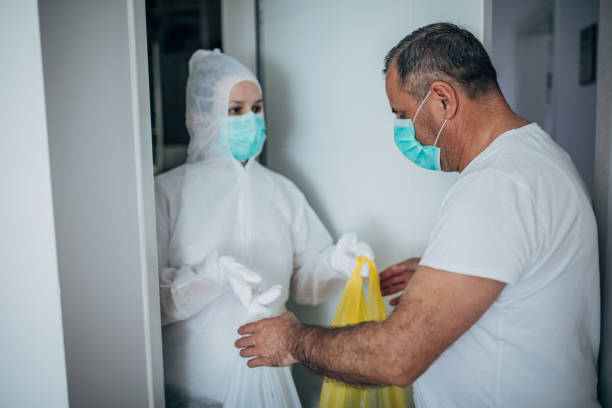Qualifications to Donate Bone Marrow
Donating bone marrow is a profound act of generosity that can save lives, particularly for patients suffering from life-threatening diseases like leukemia, lymphoma, and other types of blood disorders. However, not everyone is eligible to donate. The qualifications for bone marrow donation are stringent to ensure both the donor's and recipient's safety and well-being.
Understanding Bone Marrow Donation
Bone marrow is a spongy tissue found inside bones, primarily in the hips and thighs. It contains hematopoietic stem cells, which are essential for producing healthy blood cells. These stem cells can develop into red blood cells, white blood cells, and platelets. For patients whose bone marrow is damaged or destroyed due to disease or chemotherapy, a bone marrow transplant can be a crucial, life-saving treatment.
Basic Eligibility Criteria
The basic eligibility criteria for bone marrow donation focus on age, health, and medical history. Generally, potential donors must be between 18 and 60 years old. The age limit is crucial because younger donors tend to produce healthier and more abundant stem cells, which are more likely to result in successful transplants.
Health Requirements
Potential donors must be in good general health. Chronic illnesses, infections, and certain medications can affect the quality of bone marrow and may disqualify individuals from donating. Conditions such as autoimmune diseases, heart diseases, or cancers (other than localized skin cancer) typically render individuals ineligible. Additionally, those with recent or chronic infections, including HIV or hepatitis, are not eligible to donate.
Weight and Body Mass Index (BMI)
Weight and BMI are also important factors. Potential donors must maintain a healthy weight. Those who are significantly underweight or overweight may face additional health risks during the donation process, making it unsafe for them to donate. The specifics of acceptable weight and BMI ranges can vary by donation center, but the aim is to ensure the donor’s body can handle the stress of the procedure without adverse effects.
Medical History and Lifestyle
A thorough review of a potential donor's medical history and lifestyle is conducted. This review includes questions about recent surgeries, chronic health conditions, and lifestyle choices that might affect their overall health. For instance, individuals who have had certain types of cancer, heart disease, or who are taking medications that suppress the immune system may be deemed ineligible.
Lifestyle factors such as travel history to certain countries, drug use, and sexual history are also considered. These factors can influence the risk of transmitting infections to the recipient. Therefore, a detailed and honest disclosure of medical history and lifestyle is essential for the safety of both donor and recipient.
Matching Process
The matching process is another critical component of bone marrow donation. The best matches are usually found among individuals of the same ethnic background. Human Leukocyte Antigen (HLA) typing is used to match donors and recipients. HLA are proteins found on the surface of cells that play a significant role in the body's immune response. A close HLA match between donor and recipient increases the chances of a successful transplant and reduces the risk of complications such as graft-versus-host disease.
Blood Tests and Physical Examination
Before being accepted as a donor, individuals must undergo a series of blood tests and a physical examination. The blood tests confirm HLA compatibility and check for infectious diseases such as HIV and hepatitis. The physical examination ensures that the donor is in good health and capable of undergoing the donation procedure safely.
Psychological Evaluation
Bone marrow donation is a serious commitment, both physically and emotionally. Potential donors may undergo a psychological evaluation to ensure they fully understand the process and the implications of their decision. This evaluation helps to identify any psychological barriers that might prevent the donor from completing the donation process or coping with its aftermath.
Understanding the Donation Procedures
There are two primary methods for donating bone marrow: Peripheral Blood Stem Cell (PBSC) donation and bone marrow donation through surgery. Each method has specific requirements and involves different procedures.
Peripheral Blood Stem Cell (PBSC) Donation involves taking medication to increase the number of stem cells in the bloodstream, followed by a procedure similar to donating blood. This method is less invasive and typically has a quicker recovery time compared to surgical bone marrow donation.
Surgical Bone Marrow Donation involves extracting marrow from the back of the pelvic bone using a needle. This procedure is done under general or regional anesthesia and may require a short hospital stay. Recovery time is longer compared to PBSC donation, and donors might experience some pain or discomfort at the extraction site.
Commitment and Follow-Up
Potential donors must be committed to the entire process, from initial testing to the actual donation and follow-up. This commitment is vital because the recipient's life may depend on the timely donation of healthy bone marrow. Donors are also required to participate in follow-up evaluations to monitor their recovery and ensure there are no complications.
Legal and Ethical Considerations
The process of bone marrow donation is governed by strict legal and ethical guidelines to protect the rights and welfare of both donors and recipients. These guidelines ensure that donations are voluntary and that donors are fully informed about the risks and benefits. Consent is a crucial aspect, and donors must provide informed consent before undergoing any procedures.
Global and Regional Variations
Eligibility criteria and procedures can vary by country and region. Different organizations and registries may have specific guidelines and requirements based on local health regulations and the prevalence of certain diseases. It is important for potential donors to consult with local donation centers or registries to understand the specific qualifications and procedures applicable in their area.
The Importance of Diversity in Donor Registries
One of the challenges in bone marrow transplantation is finding matching donors for patients from diverse ethnic backgrounds. Increasing the diversity of donor registries is crucial to improve the chances of finding suitable matches for all patients. Efforts are being made globally to raise awareness and encourage individuals from underrepresented communities to join donor registries.
Conclusion
Donating bone marrow is a life-saving act that requires careful consideration and adherence to strict eligibility criteria. Understanding the qualifications, procedures, and commitments involved is essential for potential donors. By meeting these qualifications and making an informed decision, donors can provide a second chance at life for patients in need of bone marrow transplants. As awareness and participation in donor registries grow, the hope is to offer a lifeline to more patients around the world, regardless of their ethnic or genetic background.




